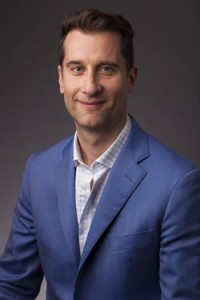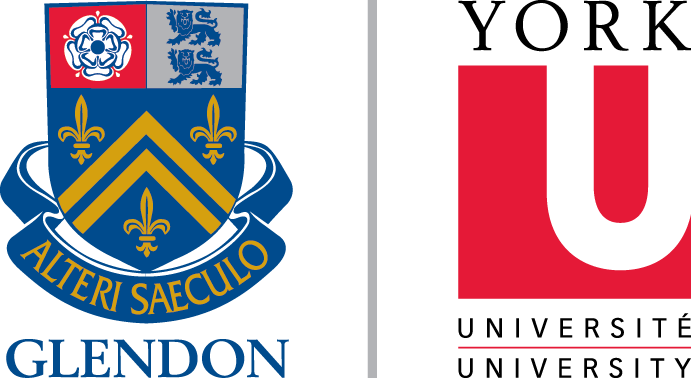 Almost three months to the day of his arrival, Glendon College’s new Principal, Donald Ipperciel, graciously agreed to answer questions for Glendon Magazine. The main points of this exchange are summarized below.
Almost three months to the day of his arrival, Glendon College’s new Principal, Donald Ipperciel, graciously agreed to answer questions for Glendon Magazine. The main points of this exchange are summarized below.
Glendon Magazine (G.M.): You are joining Glendon as its new Principal. Can you tell us about your educational background and career path up to the present time’
Donald Ipperciel (D.I.): As a matter of fact, I would say somewhat jokingly that everything started when I was in kindergarten’ More seriously, I completed a B.A. and Master of Philosophy degree at the Université de Montréal. I then went to Heidelberg, Germany, to do a Ph.D. at Ruprecht-Karls Universität. I had to learn Latin because, in Germany, a diploma in Latin is required before you can do a Ph.D. Then, in 1996, I returned to Montreal and, in September of that year, I had the opportunity to go to the Campus Saint-Jean at the University of Alberta. I advanced through the usual stages: lecturer and visiting professor; assistant professor in 2000; associate professor in 2004; and tenured professor in 2008. I also took on some administrative duties during those years. These included serving as Director of the Canadian Studies Institute, Vice-Dean of Research, Vice-Dean of Technology and Innovation, and Co-Dean.
G.M.: What were ‘ and what are ‘ your first impressions of Glendon College’
D.I.: I was lucky enough to arrive in July. Glendon has an absolutely magnificent campus, particularly in summer. Moreover, Glendon and the Campus Saint-Jean in Edmonton have a somewhat similar situation: both represent a small francophone space within a large anglophone environment. Glendon College is bilingual and francophone, but two-thirds of our students are anglophones (also known as francophiles) and the other third are francophones. I’ve just arrived at Glendon and am discovering a few issues that are quite similar to those at the campus I recently left in Alberta. In a word, I’m already feeling at home here.
G.M.: At the 2014 Homecoming in September, you did not address the theme of “Glendon and the World”; instead you chose to revisit the fundamental mission of the College, its nature as a liberal arts college. Why did you decide on this particular focus’
D.I.: First, let me clarify that the theme “Glendon in [sic] the World” refers to the world in general and not to globalization. Glendon has always been a liberal arts college; over the years, however, an increasing number of so-called “professional” disciplines have been added to our programs. I saw Homecoming as an opportunity to put a fundamental question to our alumni and our community: who are we in 2014′
G.M.: In your speech, you clearly distinguish between the liberal arts, which are intended to mould the mind, and the skills that are more professional or technical in nature. Does the general environment of higher education in 2014 still lend itself to a distinction of this sort’ Are we not instead witnessing a context in which the mission of our universities has become highly or overly utilitarian’
D.I.: The context has changed, admittedly. Recently, I checked to see how many presidents of major Canadian universities are engineers. It turns out that there are twice as many now as there were a decade ago. So, we can see a movement towards professional education. That’s an indication of the direction in which universities are currently headed. It’s futile to resist that trend, but we also need to distinguish between short-term and long-term utilitarianism. It is indeed very important to make the most of technical skills. Society needs people who can build bridges, program computers or care for people in an appropriate manner. But we need much more than that. For example, our President at York is an engineer, but the person he hired to be his speech-writer and Director of Communications studied English and was a speech-writer for the Presidents of Harvard and McGill. She is now with us and is the product of a liberal arts education. There’s no doubt that our President needs this person to communicate his messages. We will always need leaders with good oral and written communication skills, people who have a broad culture and wide knowledge of the world around us. In fact, if the skills of today’s leaders are only technical skills, such people are not really leaders. So, when I speak of a “broader” utilitarianism, I mean that the liberal arts are every bit as useful for society, and are therefore essential to people’s general education.
I recently read a study showing that people who had done their studies in a humanities or social sciences field (sociology, anthropology, etc.) started off lower on the ladder when they entered the job market, but climbed the rungs more quickly than other employees. It’s obvious that these people have writing skills, critical thinking skills, etc., that are useful to management. After five years, they accede to higher levels within the hierarchy. So, it’s clear that a liberal arts education has value in the real world.
There is no problem with Glendon offering professional education courses as long as they are infused with the spirit of the liberal arts. If we train nurses, for instance, we need to add some elements of bioethics to their program. If we train lawyers, let’s include the art of reasoning. Such additions will definitely be of benefit to our alumni in their careers. In this regard, I have a few ideas that I would like to flesh out and share in the coming months and years with my colleagues and the broader Glendon community.
G.M.: Your Homecoming speech clearly indicates your concern as to the type of education that Glendon students need to receive. What concrete developments vis-à-vis educational offerings do you see occurring at Glendon in the months and years ahead’
D.I.: When I arrived, I stated that I envisioned four priorities for Glendon: technology, research, la francophonie and marketing, and developing our fund-raising strategies. (This fourth priority is less relevant to teaching.)
In terms of technology, I’m planning to capitalize considerably on the teaching technologies. This is something I’ve done in the past on the Campus Saint-Jean and would now like to see Glendon benefit from. We have just hired one of Canada’s foremost Moodle experts, and it’s my hope that Glendon will play a vanguard role in this area in order to attract today’s students to our institution and serve them better.
When it comes to research, I remain convinced that the best researchers make the best teachers. They are the most enthusiastic in the classroom and their teaching is imbued with a special richness. In fact, even for the basic courses taught in the first two years, it is important to convey to our students a passion for learning and a desire to go further; and researchers are well equipped to do this.
Finally, Glendon College will need to focus heavily on la francophonie. I would like for our student population here to be at least 50% francophones (as opposed to the current 25% to 30%). Such a balance would benefit both language groups on our campus. This goal is going to take some in-house work but also some external work with the groups and institutions that make up Ontario’s French-speaking communities.
G.M.: In conclusion, please speak about Glendon’s bilingual character and the importance of this quality as it specifically applies to the College.
D.I.: The first thing people think about when bilingualism is mentioned is its usefulness in terms of the job market or cognitive development in children. As far as I’m concerned, this is not the most important thing. It’s a rather utilitarian viewpoint. A more interesting angle is the perception of bilingualism from an identity perspective. Bilingualism is part of the fabric of Canadian identity. This is also true in Quebec, even though some Quebeckers would not agree; in Ontario, however, it’s even more true. Here in Toronto we can detect strong growth in a multicultural and eclectic francophonie in terms of their identity. In addition, there is still growth in Canada’s immersion programs. The number of children enrolled in immersion classes increases each year, and they represent a client group for us. Moreover, Glendon is also a reflection of the importance of bilingualism in Southwest Ontario. We are the only institution capable of teaching in both languages in this part of the Province. In addition, we have recently submitted an application for a partial designation under the Official Languages Act; this should attract a certain amount of recognition for us. All our tenured faculty are able to teach in both languages, and our study programs are offered in both English and French. Furthermore, all Glendon employees are bilingual; in fact, 58% of our staff are francophones.
So, we can see both an element of tradition and a revealing indicator of the significant role that Glendon College can play in Canada in terms of culture and identity.
G.M.: Thank you.
Moodle (Modular Object-Oriented Dynamic Learning Environment) is an e-learning software learning platform. See http://en.wikipedia.org/wiki/Moodle
Interview conducted and edited by Michel Héroux.


